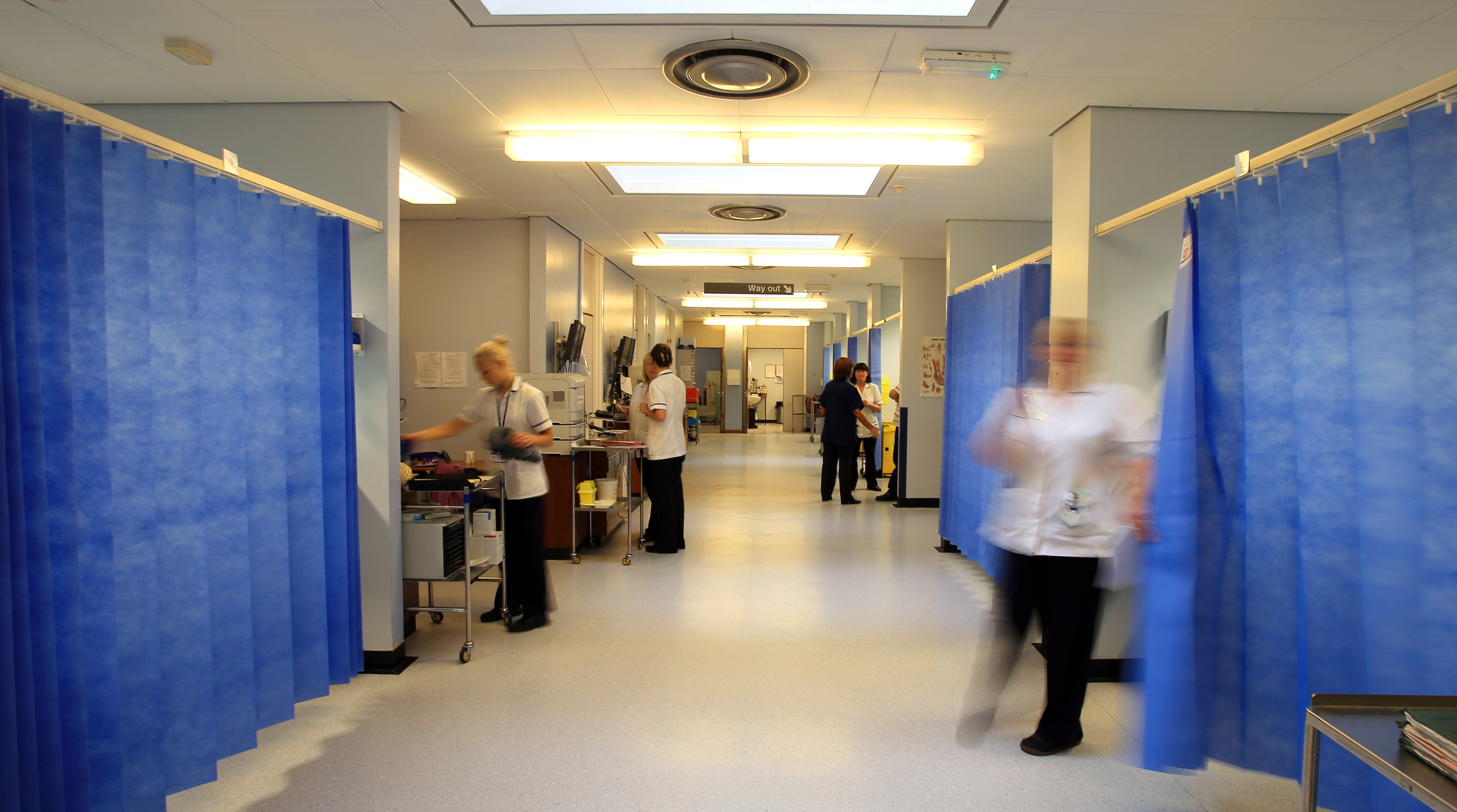‘Staggering rise in the number of people with stroke-inducing heart condition’
According to the study, the condition now outstrips the combined number of people diagnosed with the four most common types of cancer.

Your support helps us to tell the story
From reproductive rights to climate change to Big Tech, The Independent is on the ground when the story is developing. Whether it's investigating the financials of Elon Musk's pro-Trump PAC or producing our latest documentary, 'The A Word', which shines a light on the American women fighting for reproductive rights, we know how important it is to parse out the facts from the messaging.
At such a critical moment in US history, we need reporters on the ground. Your donation allows us to keep sending journalists to speak to both sides of the story.
The Independent is trusted by Americans across the entire political spectrum. And unlike many other quality news outlets, we choose not to lock Americans out of our reporting and analysis with paywalls. We believe quality journalism should be available to everyone, paid for by those who can afford it.
Your support makes all the difference.There has been a “staggering” rise in the number of people living with a stroke-inducing heart condition, a new study suggests.
Cases of atrial fibrillation (AF) – a dangerous heart rhythm condition and major cause of strokes – have increased by up to 72% in England over the last two decades, the research has found.
According to the study, the condition now outstrips the combined number of people diagnosed with the four most common types of cancer – breast, prostate, lung and bowel – and exceeds the number of people living with heart failure.
Researchers say the findings should help change the way AF is prevented, detected and treated, as not everyone experiences symptoms and diagnosing it is difficult.
The sheer rise in the number of people now living with AF is staggering, and yet on top of this, many more people will be unaware that they also have this hidden stroke risk in their heart
In the largest and most detailed study into AF, researchers from the University of Leeds used GP and hospital data from 3.4 million people in England to analyse those diagnosed with AF for the first time between 1998 and 2017.
They found the number of people diagnosed with the condition each year increased from 117,880 in 1998 to 202,333 in 2017.
An ageing and less healthy population is largely behind the increase, the researchers found.
But when age and sex were taken into consideration, researchers found the number of people diagnosed with AF increased by 30% across the two decades.
More men were diagnosed, and on average five years earlier than women, which is thought to be partly due to more men having diabetes, obstructive sleep apnoea, coronary heart disease and having smoked.
The data suggests that, over the course of the study, more people were living with other health conditions at the time of their diagnosis – including high blood pressure, diabetes and obesity, and the number of people with three or more other health conditions increased from 48% in 1998 to 68% in 2017.
Chris Gale, professor of cardiovascular medicine and British Heart Foundation-funded researcher at the University of Leeds, said: “Changes to healthcare are driven by data and we’ve created the first blueprint of AF that lays bare the growing impact it is having on society.
“Our study paints a clear picture of the trends and gaps that need to be urgently addressed to achieve health equity and prevent unnecessary strokes.
“We hope that it can be used as a reference point to determine if new interventions and health strategies are successful in curtailing the rising tide of cases and burden that comes with AF.”
The research also found that people from the poorest backgrounds were 20% more likely to have AF than the wealthiest patients.
- Heart palpitations
- Tiredness and being less able to exercise
- Breathlessness
- Feeling faint or lightheaded
- Chest pain
Professor Sir Nilesh Samani, medical director at the British Heart Foundation (BHF), said: “The sheer rise in the number of people now living with AF is staggering, and yet on top of this, many more people will be unaware that they also have this hidden stroke risk in their heart.
“This research also highlights the health inequity that exists in AF and other health conditions such as obesity and high blood pressure that contribute to its development.
“It emphasises that we need more targeted prevention strategies and new innovations to equip doctors to better detect the condition early so people can benefit from anti-clotting drugs and other life-saving treatment.”
The study also found that the youngest and oldest individuals were most likely to be diagnosed in hospital.
This suggests that new onset AF is particularly troublesome in these groups, and measures should be put in place to prevent and detect it early to reduce hospital admissions.
AF comes and goes, and so an episode might not happen during the patient’s appointment.
It can also occur without symptoms, and so a person may not know they have AF until they have a related cardiovascular event such as a stroke, by which time it may be too late.
People with the condition are five times more likely to have a stroke and the stroke is more likely to be debilitating, with a lower chance of surviving.
Prof Gale and his team have already developed a new digital prediction tool for AF that aims to detect it early, which they hope can soon be trialled in the NHS.
Funded by the BHF, the study is published in The Lancet Regional Health – Europe.